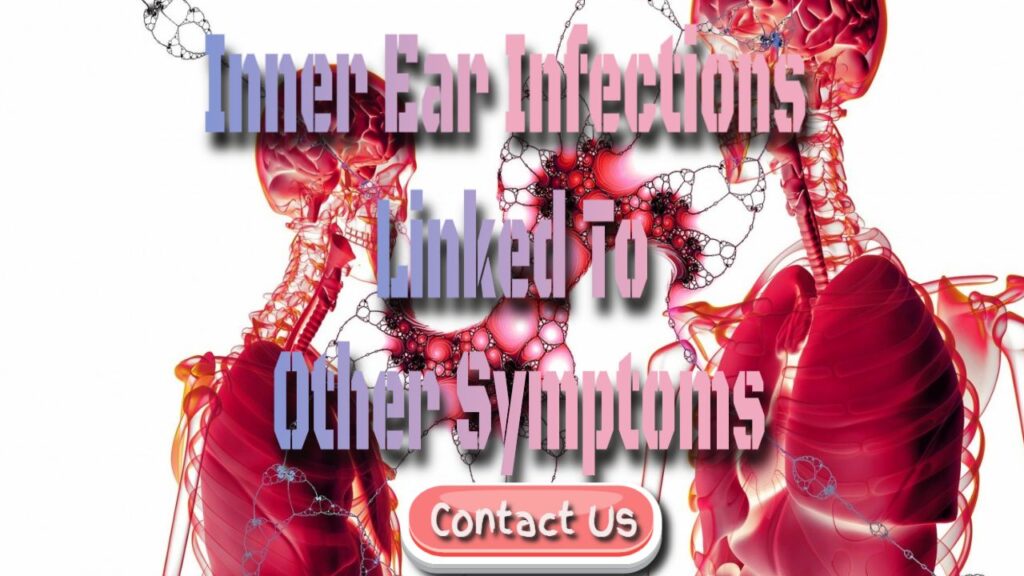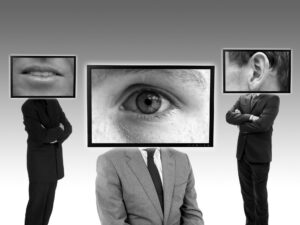Inner Ear Infections Linked To Other Symptoms
Earwax is natural oil produced by the body to keep bacteria, dust, and other foreign objects out of the ear canal. A purulent discharge (pus) is most commonly associated with a middle ear infection (otitis media) rather than an inner ear infection.
HSE, which is caused by the herpes simplex virus type 1, can affect people of any age, although it is most frequent in adults in their forties and fifties, as well as people under the age of twenty and those over the age of 40.
In the United States, this fast progressing condition is the leading cause of sporadic fatal encephalitis.
Headaches and fever can last up to 5 days, with personality and behavioural abnormalities, seizures, hallucinations, and changes in consciousness following.
After the first month of life, brain injury in adults and children mainly develops in the frontal and temporal lobes (leading to behavioural and personality disorders) and can be severe.
Symptoms That May Accompany Inner Ear Infections
Depending on where the infection is coming from, various symptoms may accompany inner ear infections. You may also have a runny nose if the infection has moved from the respiratory tract to the inner ear. These other symptoms may subside when difficulties begin in the inner ear since the primary infection may have cleared up. You may also experience more general illness symptoms, such as a fever.
How Do You Know If An Ear Infection Has Spread To The Brain
If mastoiditis occurs, it is critical to get treatment as soon as possible to avoid irreparable damage. The infection may reappear even if treatment is suitable. Doctors must closely follow patients with mastoiditis to ensure that the illness does not return or spread.
Patients should take all antibiotics prescribed by their doctor for an ear infection, even if their symptoms improve. Taking a partial dose of antibiotics makes the infection more likely to resurface.
Ear Infection Spread To Brain Symptoms
Hippocrates, a Greek physician, first described the severity of otitis media around 460 B.C., writing, “Acute pain in the ear with continuous high fever is to be feared, for the patient may fall into delirium and die.”
If a liver cyst continues to grow, it may burst and bleed. A liver cyst that leaks into the abdominal cavity can cause severe shoulder and stomach discomfort in those who are affected. When a liver cyst ruptures, the bleeding usually ceases without medical intervention, and the pain fades over a few days. Significant abdominal and shoulder pain might be caused by appendicitis or a ruptured ovarian cyst. Therefore patients should seek attention as soon as possible.
Inner Ear Disorders Ppt
The facial nerve supplies the stapedius muscle. The Vth nerve supplies the tensor tympani (TT), which is part of a more extensive system that includes the tensor veli palatini (TVP) and the palatine muscles that open the Eustachian tube. Because the TT is anatomically related to the TVP muscle, determine whether the pathology originates in the TVP or the TT. In humans, the TT does not appear to respond to sound, but it has been observed to respond to stroking of the face, air blasts on the eyes, tongue electrical stimulation, and swallowing (review in Bance et al.
Middle Ear Disorders Symptoms
Motion sickness is caused by a low tolerance to motion in vehicles such as cars, boats, cruise ships, and aeroplanes. * A cold or infection of the ears or nasal passages that cause the Eustachian tube to become blocked or swollen. As a result of the middle ear’s inability to balance air pressure in the middle ear chamber, excessive pressure is placed on the inner ear and, as a result, on the arcuate ducts, where balance is sensed. In hypertension, high cholesterol, diabetes, anaemia, calcium problems, and alcohol or drug addiction, calcium crystals or debris can build up in the vestibule (cochlea’s balance organ).
Lightheadedness is one of the most common symptoms of vertigo. A variety of factors can cause vertigo. It may be linked to anxiety, panic attacks, or mood fluctuations. A cardiovascular condition, such as an irregular heartbeat (arrhythmia) or a reduction in blood pressure after shifting postures, can cause dizziness in the form of lightheadedness (postural hypotension). Some blood pressure drugs (antihypertensives), anticonvulsants (medications for seizures or twitching), sedatives, and sleep aids are examples of medications that might produce sleepiness and imbalance (hypnotics). Dizziness might also be caused by difficulties with your body’s chemical changes. (metabolic disorders), such as when your blood sugar is too low (hypoglycemia) or a hormone imbalance.
Eardrum Problems Symptoms
However, if your sinuses are blocked, or your Eustachian tube does not open and close as it should, tremendous pressure can build up, causing the eardrum to rupture.
Ear Disorders
Hearing loss and a foul-smelling ear discharge are the most typical symptoms. Although it is not cancer (malignant), it is significant since it can produce catastrophic problems such as irreversible deafness and life-threatening infections such as meningitis.
An otoscopic exam will be performed if you have any of the signs of a burst eardrum. An otoscope is a piece of light-emitting equipment that allows you to see within the ear. The doctor will most likely be able to observe a hole or tear in the eardrum.
Can Ear Problems Cause Loss Of Balance
If you’re a diver, wait until your injury is healed before diving again. You risk re-injuring yourself if you dive again too soon. When you’re ready to dive again, your healthcare provider will let you know. It would also be beneficial if you waited till your doctor cleared you to fly again.
Perforated Eardrum Balance Problems
Severe head trauma, such as a vehicle accident, can result in a ruptured eardrum, structural damage to the three middle ear bones, and even damage to the cochlea, all of which can significantly impact the cochlea your hearing.
Retracted Eardrum Problems
Typically, surgery is performed as an outpatient treatment. This means you won’t be required to stay in the hospital after the procedure. If the cyst is large or infected, you will need to be admitted to the hospital. The procedure is performed under general anaesthetic. Additional procedures are typically required after the initial cyst removal treatment to heal damaged parts of the inner ear and remove the cyst.
What Can Cause Ear Problems
A physical examination can detect barotrauma in the ear in many cases. An otoscope used to check inside the ear can often identify abnormalities in the eardrum. The eardrum may be pushed slightly outward or inward depending on the pressure shift. Your doctor may use insufflation (pushing air into the ear) to examine if fluid or blood has accumulated behind the eardrum. If the physical exam reveals no significant abnormalities, the situations you describe your symptoms may provide clues to the accurate diagnosis.
When diving, compensate for your ears by sinking gently and avoiding diving if you have cold or allergy symptoms. Anyone who wants to undertake scuba diving should always seek professional counsel.
Are Clogged Ears A Sign Of Hearing Loss
The pressure in your middle ear must match the air pressure in your environment for your hearing to function normally. The Eustachian tube must open if the outside pressure is higher or lower than the pressure in the middle ear. As a result, the pressure between the middle ear and the outer environment is balanced.
Of course, you must first consult your doctor to get a proper diagnosis of OME. They will then need to evaluate if the fluid has built up in your ear, which they will most likely do by using an otoscope to check into your ears. An acoustic reflectometer or a tympanogram can be used to perform this electronically. The back of your nose (nasopharynx) may need to be examined to make sure the Eustachian tube’s nasal aperture isn’t obstructed.
Ear Conditions That Cause Dizziness
Inner Ear Vertigo Icd 10
Calcium carbonate crystals moving on their bed of sensory hairs in the utricle and saccule send messages to the brain about changes in head posture. The cerebellum (a component of the brain) receives information about changes in the hairs triggered by the crystals, which it transforms into information about the location of the head about gravity.
A vestibular physical therapy programme may be indicated if balance and dizziness difficulties persist for longer than a few weeks. This programme aims to teach the brain to adjust to the changes in the patient’s balance.
A virus’s treatment. Antiviral drugs, such as aciclovir, are administered if a herpes virus is suspected as the cause of vestibular neuritis. (Antibiotics aren’t used to treat vestibular neuritis because it’s not a bacterial infection.)
Brought To You By: Ear Wax Removal Croydon
The post Inner Ear Infections Be Linked To Other Symptoms appeared first on Emergency Squad.
The Article Inner Ear Infections Can Be Linked To Other Symptoms First Appeared ON
: https://gqcentral.co.uk
The post Inner Ear Infections Can Be Linked To Other Symptoms appeared first on https://alef3.com







Comments are closed